The director of We Need to Talk About Kevin (2011) adapts Ariana Harwicz‘s novel of the same title, Die, My Love, in what some might consider an empathetic psychological study of postpartum depression. Lynne Ramsay enlists Jennifer Lawrence (also a producer) to play Grace, a young New York writer who moves to the country with her husband, Jackson (Robert Pattinson), in what was once his uncle’s house, next to the family home where she grew up. Ramsay moves quickly, in just a few scenes, through the euphoria of the recent move and pregnancy, to place us in the less exciting life of a wife who spends the week alone in the absence of her husband, who works away, and whose mental state gradually deteriorates. The effects of depression begin to be visible in the neglect that settles in around her, the sexual fantasies with a mysterious biker (LaKeith Stanfield) and the repeated escapes from home, in the dead of night.
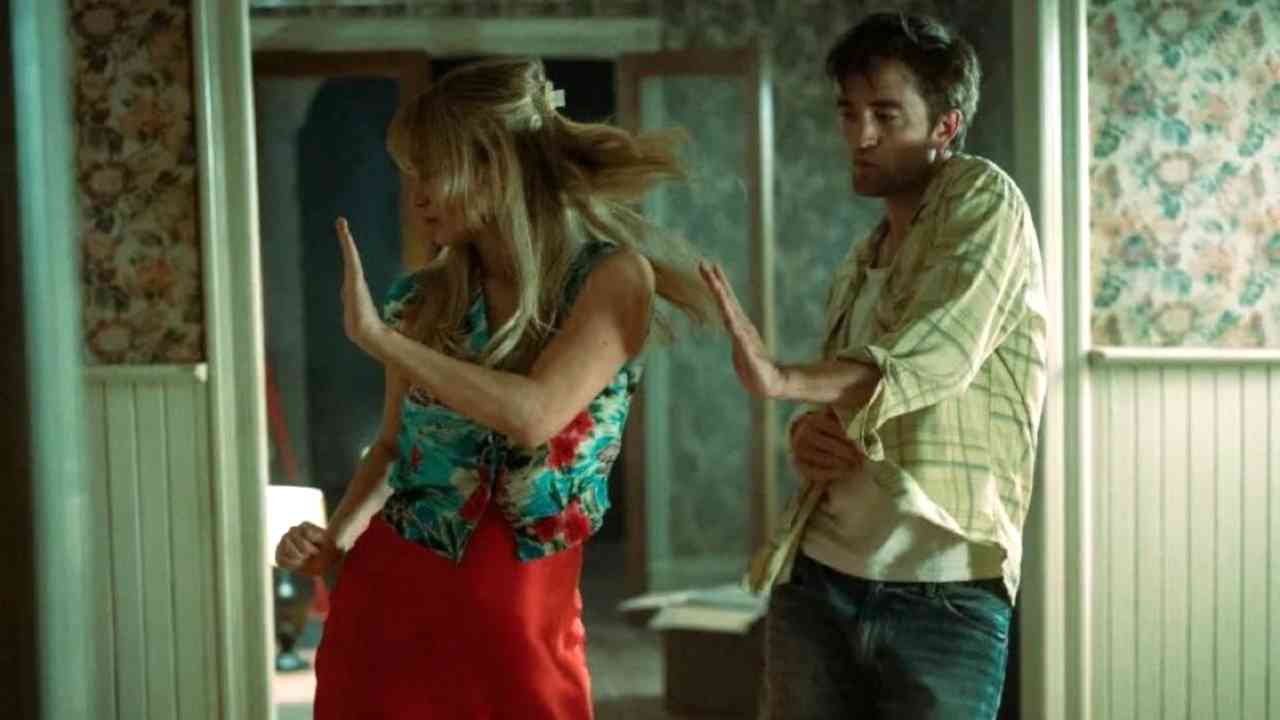
The disturbing atmosphere is heightened by the death of her father-in-law, Harry (Nick Nolte), the consequent sleepwalking of the mother-in-law, Pam (Sissy Spacek), who is the only hand extended to help her, while scenes of hysterical argument, violence and despair multiply with Jackson. The houses of the two families are gloomy, oozing with unspeakable memories, but they are not the only scene of misfortune. The woods, the barn and above all the family car are witnesses to Grace’s helplessness and lack of resources to get out of the pit of anguish that little by little is disturbing her. Infidelities hinted at by the repeated presence of condoms in the glove compartment, countless attempts to start over and an admission to the hospital are the different episodes with which the director describes the psychological drift of the protagonist and the reaction of her partner.
Resorting to the wedding as a last resort to consolidate their relationship, the viewer can only recognize the inability to handle the drama and actually help his wife. If it is a study of postpartum depression, it would basically be of its nefarious management by the environment, even with the best of intentions. In this sense, Ramsay pits the canonical evolution of Pam’s grief and recovery against her daughter-in-law’s impossible rehabilitation. We are astonished to witness a repetition of scenes that, with their accumulation, do not help to clarify or enrich the psychological characterization of Grace. On the contrary, they manage instead to saturate and disengage us from the anguish and pain of her depression, from her self-inflicted violence, from the psychotic outbreaks that lead her to a dead end.
Visually, thanks to the magnificent work of Seamus McGarvey (Atonement), we feel the decay of the houses in need of renovation, and the claustrophobic breath of their previous inhabitants, as if they made it impossible for the new ones to breathe fresh air of their own. The forests, the haunting walks at dawn, possess a force that almost compensates for the excesses of the story, while music has an important presence from the first scenes. The images that show us the arrival of the young couple to the house are illustrated with a euphoric succession of these with fixed camera, always flooded with metal, in addition to the original composition by Ben Frost.
The director herself performs her version of Joy Division‘s “Love Will Tear Us Apart” at the end of the film. Die, My Love’s superb soundtrack also includes Lou Reed, David Bowie (“Kooks”) and The Chipmunks, but fails to compensate for the lack of nuance or penetration in Ramsay’s approach. On the other hand, Lawrence’s mournful and desperate recital (only overshadowed by Spacek’s talent) turns Die, My Love into a vehicle for showcasing herself and a launching pad to a new awards season, proving that the Mother! (2017) star hasn’t forgotten her lesson.




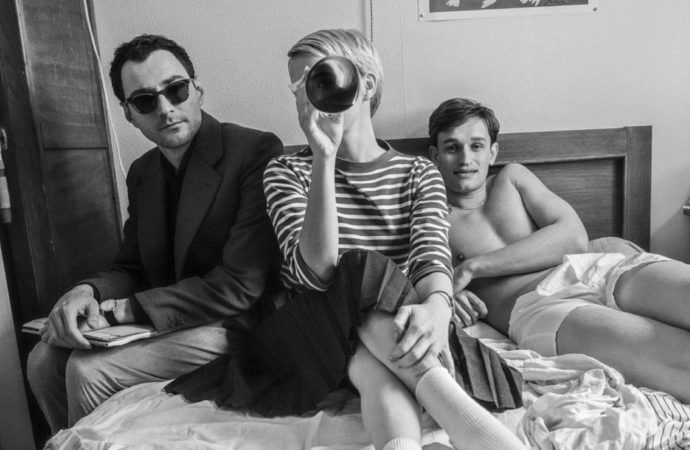
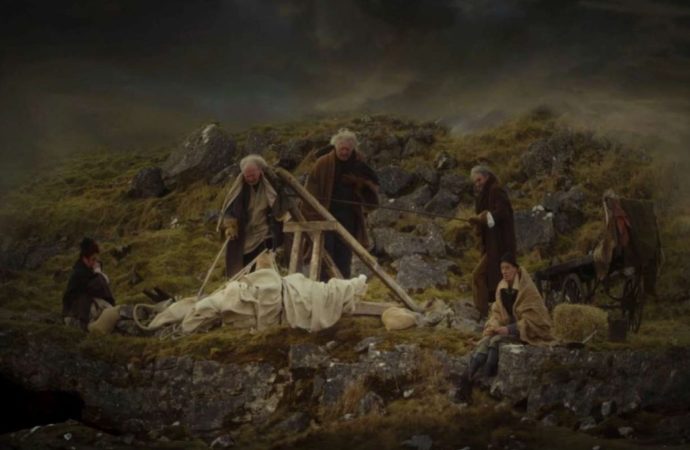
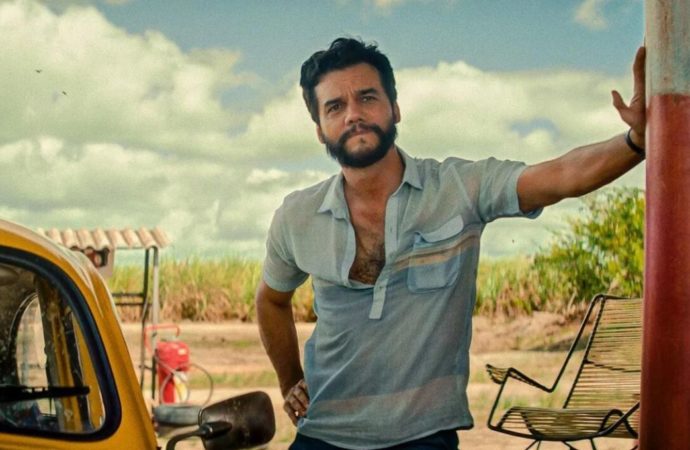
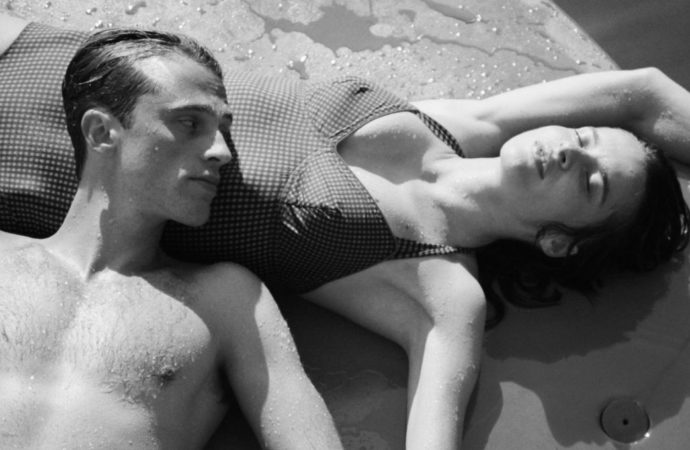
No one has posted any comments yet. Be the first person!